Are you in a dilemma over which marketing automation tool to choose for your business? Don't fret! We have got you covered. This article will compare Pardot (now known as Salesforce Marketing Cloud Account Engagement) and HubSpot Marketing Hub.
According to a recent report by Grand View Research, the global marketing automation market size is expected to reach $8.42 billion by 2027. This shows that more and more businesses are adopting marketing automation tools to streamline their marketing efforts.
While both Salesforce Marketing Cloud Account Engagement and HubSpot Marketing Hub offer a range of features, they differ in pricing, integrations, and user interface. For instance, HubSpot Marketing Hub is a more cost-effective solution for small businesses, whereas Salesforce Marketing Cloud Account Engagement is a better fit for larger enterprises.
So, buckle up and join us as we explore the key differences between these two marketing automation tools to help you make an informed decision.
Pardot vs HubSpot - Features & Capabilities
When it comes to selecting a marketing automation tool, distinguishing one from another is all about the range of features offered. This means that when comparing Salesforce Marketing Cloud Account Engagement vs Hubspot Marketing Hub, you should most certainly consider each platform's functionalities.
Because it all boils down to the features, we look at how HubSpot Marketing Hub and Marketing Cloud Account Engagement stack up against each other in this department.
|
Features |
Marketing Cloud Account Engagement |
Hubspot Marketing Hub |
|
Email Marketing |
Marketers can create sophisticated email campaigns using drag-and-drop elements or HTML coding for maximum customization. In addition, Marketing Cloud Account Engagement integrates with third-party applications such as MailChimp, allowing marketers to use data from those applications in their email campaigns. |
Marketers can employ automated strategies such as segmentation, drip campaigns, and triggered emails to deliver personalized content tailored to each recipient’s needs. |
|
Marketing Automation |
With this platform’s visual workflow builder, marketers can easily design automated customer journeys triggered by events like website visits or purchases. Marketing Cloud Account Engagement dynamic segmentation tool also helps you target specific customer segments based on various criteria such as geography or job title. |
Offers Workflow tools that automate processes like lead nurturing or contact segmentation for designing multi-channel campaigns and its Smart Insights dashboards for tracking performance metrics such as leads generated. |
|
Lead Scoring |
Assign point values to lead behaviors such as website visits or form completions to prioritize leads based on how engaged they are with the company’s products or services. |
Leverage predictive scoring models, which use machine learning algorithms to score leads based on demographic information, past behaviors, and interests expressed via email or web forms. |
|
A/B Testing |
With A/B Testing, users can create experiments dividing audiences into different groups and then test variations of emails against each other to measure performance metrics like open rate or click rate. |
Lets users run A/B tests on the landing page using its Visual Editor tool, which enables them to customize page elements without technical knowledge while tracking performance indicators like conversion rate, time spent viewing a page, or bounce rate. |
|
Lead Management |
You get customizable lead fields and layouts, allowing for more personalized engagement with leads. The platform also provides flexible segmentation options so companies can better target their prospects. |
On the other hand, HubSpot Marketing Hub integration seamlessly with social media platforms, so users can easily import contacts from sources such as Twitter or Facebook. It also provides advanced filtering capabilities, which enable users to route leads quickly based on predefined criteria. |
|
Customer Retention |
Salesforce Marketing Cloud Account Engagement uses automated campaigns, customized email templates, and predictive analytics to ensure the timely delivery of relevant messages. |
HubSpot Marketing Hub offers similar customer retention tools, such as personalization tokens, automated follow-ups, customer segmentation, and loyalty programs. |
|
Content Management |
With Marketing Cloud Account Engagement CMS, users can quickly create stunning webpages using its drag-and-drop editor in a matter of minutes because it uses Salesforce CMS to host assets. |
Meanwhile, HubSpot's Marketing Hub CMS allows marketers to publish content easily across multiple channels with just a few clicks while automatically optimizing each piece of content based on user data collected across various touchpoints. |
|
Form Builder |
The Marketing Cloud Account Engagement form builder allows users to customize forms with various fields. It also offers templates that enable users to quickly create visually appealing forms without needing technical know-how. |
With HubSpot's form builder, users can quickly and painlessly craft and embed forms on their sites using its convenient drag-and-drop editor. HubSpot’s forms also integrate with its analytics platform to provide insights into visitors' behaviors when interacting with the form. |
|
Social Media Marketing |
Marketing Cloud Account Engagement’s social media marketing capabilities are more limited than HubSpot's Marketing Hub. It allows users to schedule posts but offers no comprehensive tools or an advanced analytics suite. |
Here, HubSpot Marketing Hub takes the lead with its social media suite, enabling users to easily schedule and post on multiple platforms and track performance metrics such as likes or shares. |
Scalability & Customization
Being in control of marketing automation campaigns is essential, and HubSpot Marketing Hub and Marketing Cloud Account Engagement s can offer that functionality.
To help businesses get the most out of their content marketing strategies, Marketing Cloud Account Engagement and HubSpot Marketing Hub offer a wealth of features and capabilities. But they differ, of course, making it essential to understand the differences between these platforms in scalability and customization.
Starting with Salesforce Marketing Cloud Account Engagement, you can find many scalable features that make it easier for businesses to snowball. For example, the platform offers:
- 10,000 - 75,000 contacts
- Dynamic content personalization
- A/B testing capabilities
- Advanced segmentation options
These features allow businesses to reach more customers with targeted campaigns and messages as they grow. Additionally, Marketing Cloud Account Engagement offers an extensive library of integrations so companies can easily integrate their existing systems into the platform and gain greater insights into customer behavior.
HubSpot also offers a robust set of scalable features for businesses:
- Automated workflow management tools that help marketers automate marketing processes such as lead scoring or email nurturing campaigns.
- A robust analytics tool that enables businesses to measure their success and make timely decisions about their marketing strategies.
Customization is another key feature offered by both platforms. Salesforce Marketing Cloud Account Engagement provides extensive customization options so businesses can create a unique brand experience for their customers.
With its drag-and-drop visual editor and HTML coding options, users can customize emails, landing pages, forms, surveys, or any other digital asset quickly and easily without having any coding knowledge.
Furthermore, users can personalize each digital asset according to the target audience's needs using dynamic content personalization options such as rules-based segmentation or AI-driven recommendations.
Similarly, HubSpot allows users to create customized experiences with its templates library and drag-and-drop editor. More comes with Hubspot:
- Users can customize their webpages using custom CSS codes or utilize HubSpot's CMS (Content Management System) integration with WordPress for even more customization possibilities.
- Beyond that, HubSpot allows users to measure customer interactions with the platform by integrating third-party software such as Google Analytics or Adobe Analytics. This gives customers further insight into their behavior and preferences.
The winner between HubSpot Marketing Hub and Marketing Cloud Account Engagement in scalability and customization will depend on the specific needs of each business. So be sure to consider your company’s objectives before making a decision.
Integration Capabilities
To realize the full potential of these two marketing automation tools, it’s important to understand how they interact with the rest of your digital marketing ecosystem.
So, how do these two giants measure up? Let's have a look.
When it comes to leveraging CRM integration, Marketing Cloud Account Engagement is in a league of its own. Utilizing this platform allows you to maximize efficiency and streamline processes like never before. Allow us to explain how.
As you may already know, Marketing Cloud Account Engagement is a product of Salesforce, one of the largest CRM companies in the world. This means that it has access to Salesforce’s vast suite of products and can freely integrate with nearly any Salesforce product.
We are discussing features like SalesforceIQ, Sales Cloud, Service Cloud, and many more.
That's not all. When you merge Marketing Cloud Account Engagement with Salesforce, you can access effective automation tools that breeze lead management. Some of the automation tools explained briefly below include:
- Lead Assignment Rules: Automatically assign newly created leads to the appropriate team member.
- Email Deliverability Rules: Ensure that your emails are properly sent, received, and tracked.
- Follow-up Actions: Automate your follow-up process after each contact interaction with a lead.
- Out-of-the-box Automation Features: Here, you can set up preset customer journeys that allow you to qualify leads and route them to the appropriate team member.
It's not all bad news for HubSpot Marketing Hub. It might not be a Salesforce product, but it offers many integrations with third-party software such as HubSpot CRM, HubSpot Sales Hub, HubSpot Service Hub, and more.
When it comes to integrating Hubspot Marketing Hub into existing systems, the platform does well in providing easy setup and customization options.
- It offers HubL for developers to create custom solutions that fit any business’s needs.
- The platform also has a range of APIs, so you can connect HubSpot Marketing Hub with other third-party applications such as Google, MailChimp, and many more.
Both HubSpot Marketing Hub and Marketing Cloud Account Engagement have their strengths when it comes to integration capabilities. Ultimately, it all comes down to your business goals and which platform can help you reach them efficiently.
But from our analysis, they both perform optimally when you stick to their suite of native features and integrations.
Reporting & Analytics
Knowing what your customers purchase is not enough; you must know the other products that capture their attention, understand their eventual goals and motivations for future choices, and ascertain the factors that affect these decisions.
By recording the IP addresses of anonymous website visitors, Marketing Cloud Account Engagement can give sales teams a better understanding of who is visiting their site.
With the Engagement reports, marketers can track how recipients interact with emails—how many opened it, skimmed through it, and forwarded or printed out the email. This targeted system allows businesses to focus on leads closer to purchasing.
Salesforce Marketing Cloud Account Engagement’s comprehensive reporting capabilities empower marketers to easily measure the success of campaigns, ROI, customer journeys, and email metrics. With these insights, it is easy to identify what engages users most and where you can improve your workflows for better results.
The platform also offers a streamlined approach to unifying your business's marketing channels, allowing you to connect sales back effortlessly to programs like webinars and live events. Furthermore, Marketing Cloud Account Engagement helps you track individual customer interactions with videos and social media posts.
Enough about Marketing Cloud Account Engagement. Hubspot Marketing Hub is no slouch either when it comes to reporting & analytics. It offers detailed reports and analytics on the performance of your campaigns and customer journeys. You can also use HubSpot Marketing Hub’s dashboard to track website visits, conversions, email opens, clicks, and more.
The best part about HubSpot's Analytics Hub is that it allows you to monitor customer behavior in real time. This helps marketers make better decisions on the fly and execute campaigns more effectively.
With HubSpot, you can pinpoint exactly how many visits, contacts, and customers have been generated from your landing pages. Better yet, it creates a list of buyers while providing detailed insights into the behavior of leads that click on your links - not just tracking their clicks!
By leveraging targeted customer information, users can significantly enhance their lead-generation capabilities and avoid dealing with excessive data that may be extraneous.
Pricing
Budget is, no lie, a major factor when considering Marketing Cloud Account Engagement vs HubSpot Marketing Hub, and it should be. No one should overpay for features they do not need, and these two platforms offer different pricing tiers to accommodate a wide range of budgets.
The table below compares HubSpot Marketing Hub’s pricing plans to Marketing Cloud Account Engagement’s pricing to help you make the best decision for your business.
|
Offerings |
Hubspot Marketing Hub |
Pardot Marketing Cloud Account Engagement |
|
Starting Price |
||
|
Trial Period |
14 Days |
N/A |
|
Contact Organization |
Hubspot Marketing Hub offers its CRM software to help manage your contacts easily. |
Streamline your operations with Salesforce CRM or purchase another product. |
|
Lead Management |
All plans offer the standard features of contact, lead, and pipeline management; while the top two levels include deal and company scoring and duplicate management. |
Every plan features lead qualification and management to support you throughout the process. |
|
Customer Support |
Every Professional and Enterprise plan includes full phone and email support, ensuring all your needs are taken care of. |
24/7 customer support is only available on Marketing Cloud Account Engagement’s Premier Success plan. |
|
Maintenance |
You can maximize efficiency and productivity with a unified platform powered by a single codebase. |
Establish and sustain connectors for cross-cloud integrations in about 20 hours of labor, along with regular maintenance. |
*Pricing as of February 2023
With HubSpot Marketing Hub, you can choose a plan that fits your budget and contact needs. Prices range from $0 to $3,600 every month with the option of 1,000 up to 10,000 contacts allowed.
If you're searching for the ultimate flexibility, MCAE plans are worth exploring.
They start at $1,250 per month and go up to a hefty $15,000 per month—with access to as many as 75k contacts on their Premium Plan. These options provide an incredible amount of freedom so that businesses have more control over their marketing strategy.
Overall, it's best to consider your budget and contact needs when looking for the right marketing hub plan. Remain focused on your business objectives and acquire what you require while maintaining a budget that compliments your company's pocketbook.
Performance
We've highlighted their capabilities and features and seen how these two systems stack up against each other. But what about performance?
If they can go toe-to-toe in terms of their features, is there a reason to pick one over the other? Of course, performance can be a key differentiator. Let's take a look at HubSpot Marketing Hub vs Marketing Cloud Account Engagement in terms of performance.
- Downtime: The Marketing Hub has a track record of minimal downtime, with most outages lasting only minutes. Marketing Cloud Account Engagement, on the other hand, does not have a track record of reliable uptime, but Salesforce does offer around-the-clock customer service for any issues.
- Speed: HubSpot Marketing Hub is renowned for its speed, with most pages loading quickly despite having rich content. Marketing Cloud Account Engagement also has a fast page load time, but the complex features of the platform can slow things down from time to time.
- Uploading and Storage: With the Marketing Hub, you get a generous storage limit, allowing you to upload large files and documents without worrying about running out of space. Marketing Cloud Account Engagement also offers ample storage, but HubSpot's Marketing Hub storage limits look more attractive when compared side by side.
- Mobile Responsiveness: The Marketing Hub has responsive designs for mobile and desktop devices, meaning you can access the platform from any device without a problem. MCAE also offers mobile-friendly designs, but HubSpot's Marketing Hub design looks better and is more intuitive.
- User Experience: HubSpot's Marketing Hub user interface is clean, uncluttered, and very easy to use, making it the go-to choice for those who value a great user experience. Salesforce Marketing Cloud Account Engagement has improved its user experience, making it easy to browse through its features, but HubSpot Marketing Hub still edges ahead in this category.
Customer Support
With Hubspot Marketing Hub, professional account holders are privileged to have 24/7 chat and phone support for any issues that may arise.
There's also the Hubspot Community Forum, where HubSpot experts and other users share their knowledge and offer support. So, before contacting HubSpot for help, users can browse through helpful articles and forum threads for solutions.
Lastly, Hubspot Marketing Hub stores all your support requests, whether from chat or email, so that you can keep track of your conversations.
Although Marketing Cloud Account Engagement offers email support 24/7, it does not have phone or live chat options for customer assistance. Nonetheless, the platform provides a wealth of knowledge with its expansive database and weekly virtual training sessions to help you better understand the platform.
Moreover, they have an Idea Exchange hub where users can vote for proposed product features too!
So to conclude, HubSpot Marketing Hub has pulled ahead in terms of customer support. If customer service is a key factor for you in deciding between Pardot vs HubSpot Marketing Hub, then the latter would be the clear winner.
Pardot vs HubSpot — Which One Should You Choose?
The HubSpot Marketing Hub vs Salesforce Marketing Cloud Account Engagement debate is a difficult one to settle, as both of these platforms have their pros and cons. But Hubspot Marketing Hub offers more of a “turnkey” solution with its powerful features and ease of use.
The platform has added advantages, including HubSpot-certified partners and a dedicated customer service team. Hubspot's many features make it the perfect platform for businesses across all sizes, from small to enterprise-level.
On the other hand, Salesforce Marketing Cloud Account Engagement is a great choice for businesses that want to leverage the Salesforce platform. Its capabilities and deep integration with Salesforce make it an appealing option for those looking to leverage the Salesforce platform.
But if we were to pick a winner, HubSpot Marketing Hub would come out on top. With its comprehensive feature set and easy-to-use interface, HubSpot Marketing Hub is the go-to choice for businesses looking to maximize their marketing efforts.
Which platform is best for you will depend on what features your business needs – but either way, HubSpot Marketing Hub vs Marketing Cloud Account Engagement is a win-win situation. You can supercharge your marketing campaigns with the right platform and achieve business success.
HubSpot vs Marketo vs Pardot - Which is the Best?
It really depends on your business needs. HubSpot's feature-packed and user-friendly interface makes it the ideal choice for businesses of any size. Its reliable performance, intuitive navigation, and comprehensive technology make it an invaluable business asset.
Marketo is an outstanding option if you want access to more sophisticated features such as lead scoring and segmentation. For those who want the highest levels of integration, Pardot and the Salesforce Platform provide unbeatable benefits.
Conclusion
It is evident that HubSpot Marketing Hub outshines Marketing Cloud Account Engagement for most businesses. Thanks to its multifaceted toolset and effortless interface, HubSpot Marketing Hub provides an unbeatable return on investment and is the ideal solution for organizations aiming to maximize their marketing strategies.
Thus, if you seek an effective marketing automation platform, make sure HubSpot Marketing Hub tops your list of contenders!
Ready to get started? Contact us today, and let us help you find the right HubSpot Marketing Hub solution for your business. Our team is here to answer any questions and provide tailored advice to meet your needs. Get in touch now, and let’s take your marketing efforts to the next level.

Ulf Lonegren
Ulf is one of the co-founders here at Roketto. His passion shines brightest when tasked with increasing business growth through inbound marketing. If you want to talk strategy, give Ulf a shout and you’re likely to see him spark with excitement.
















2.png)
2.png)




